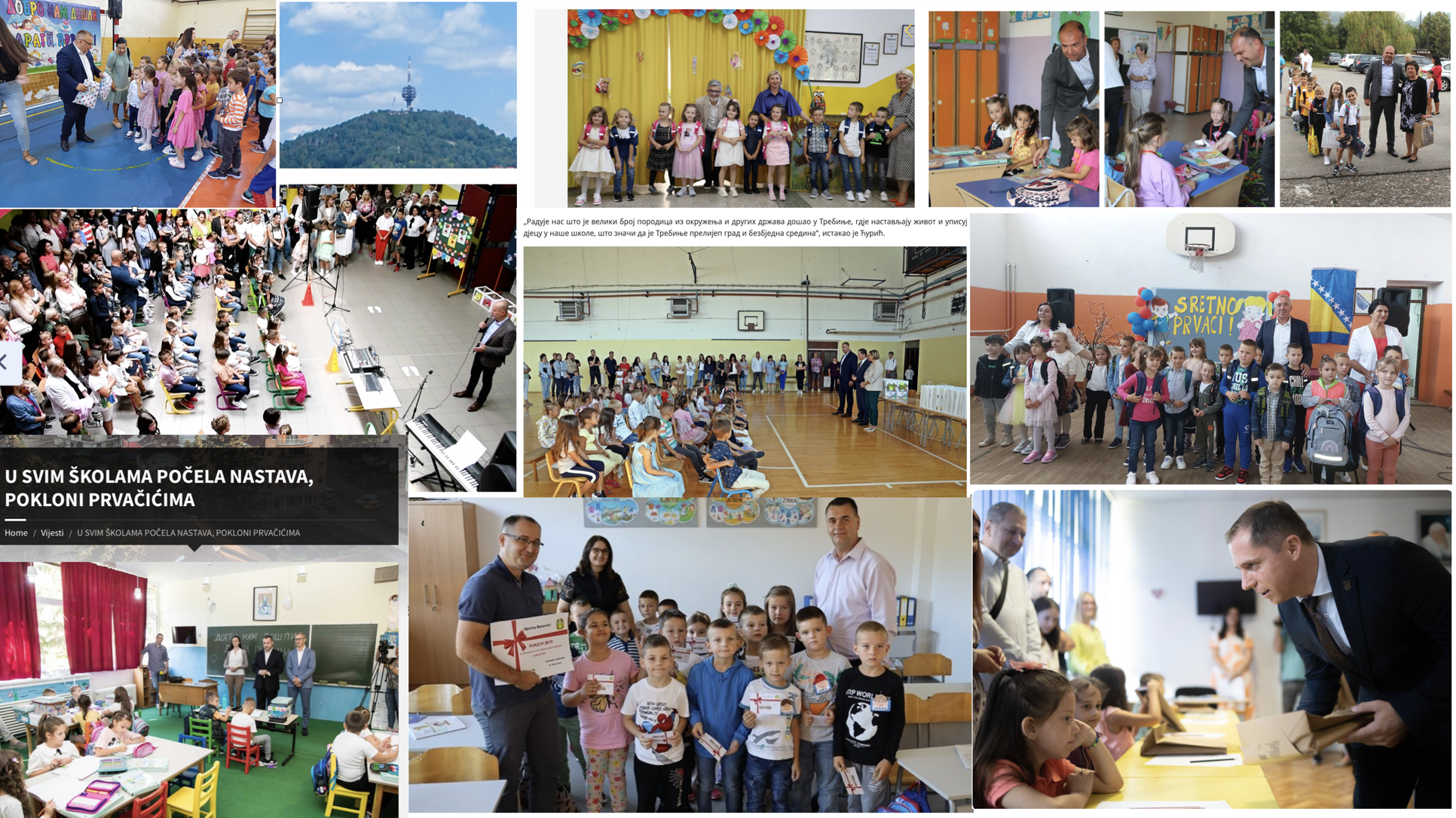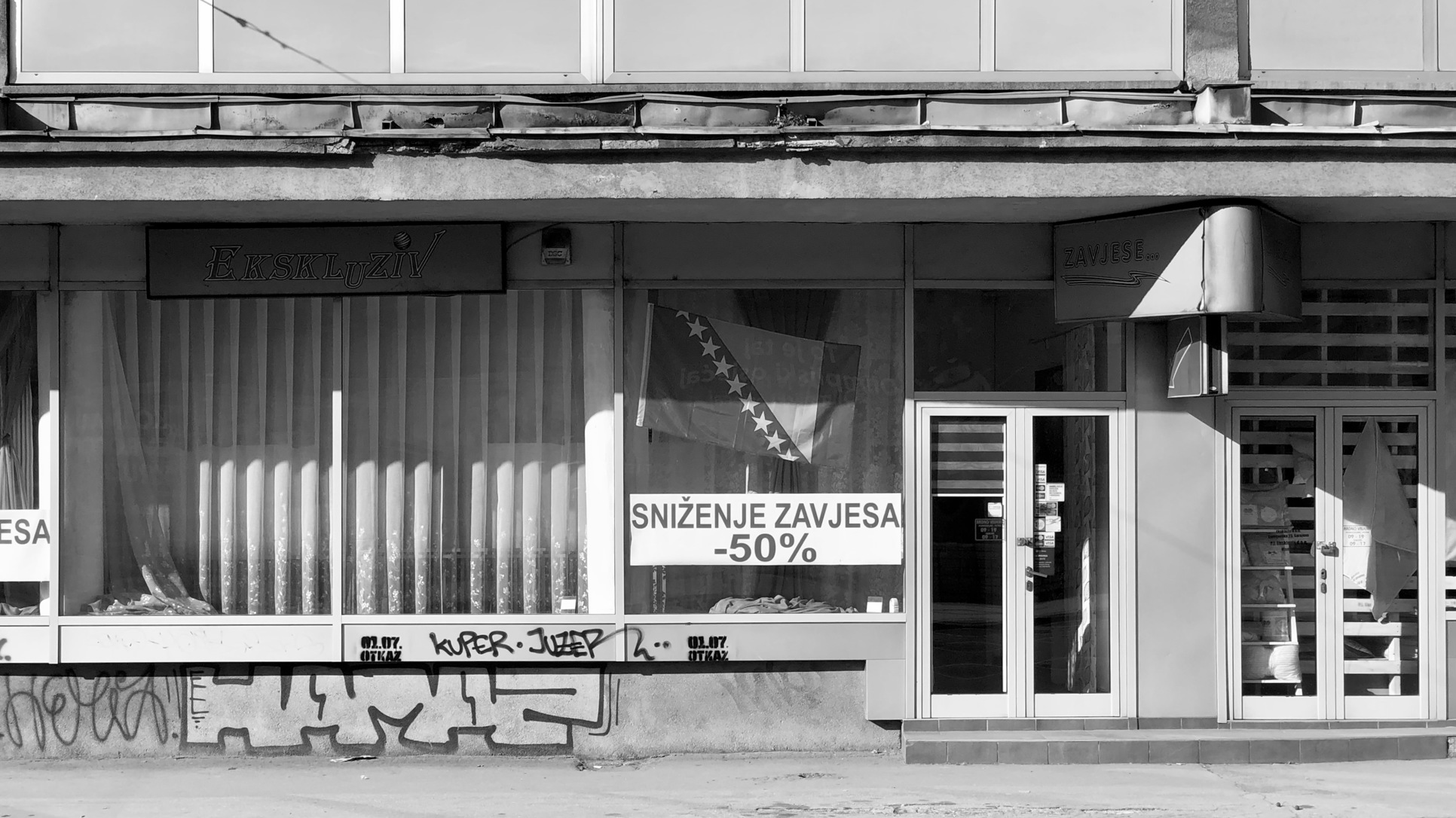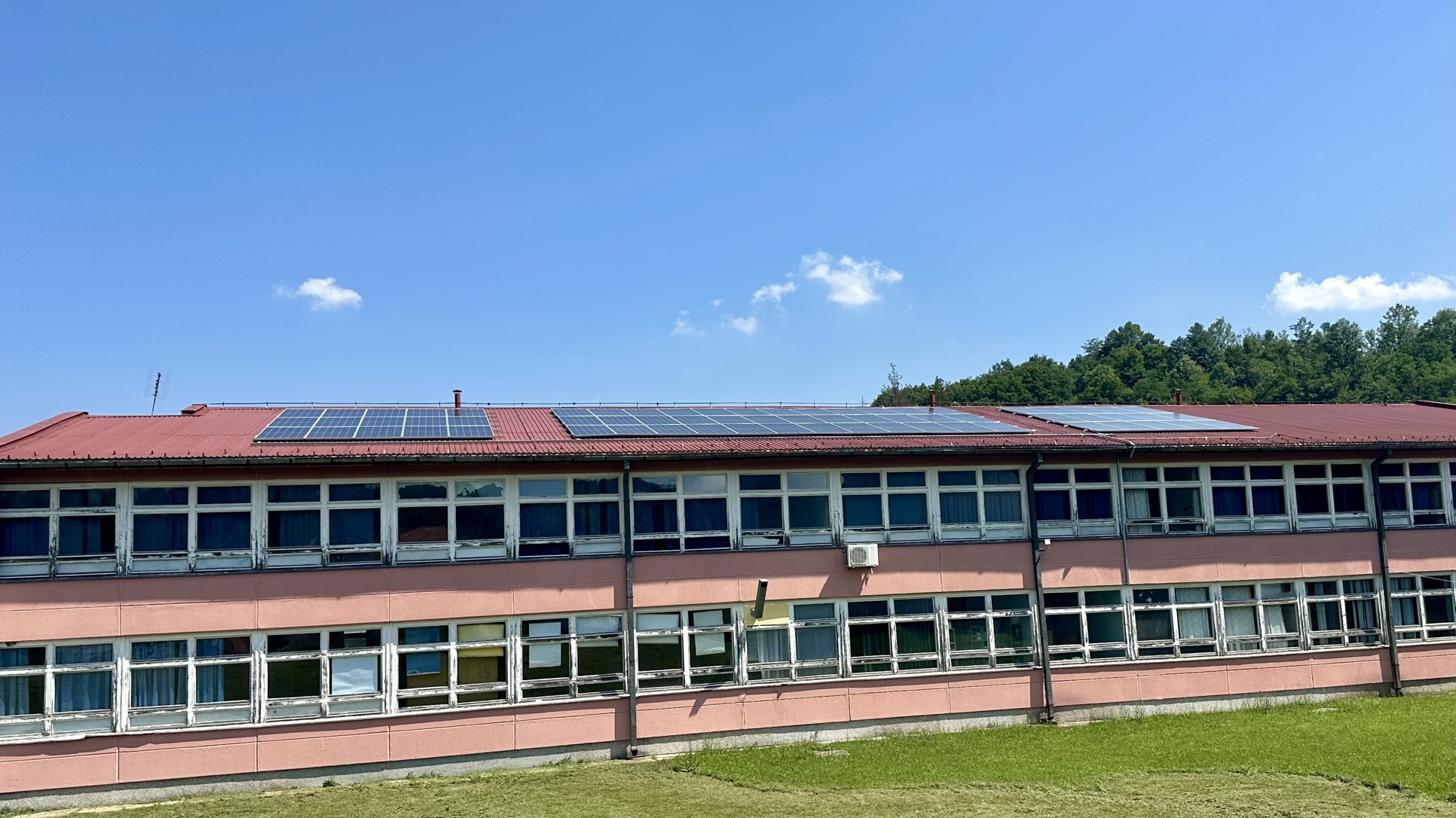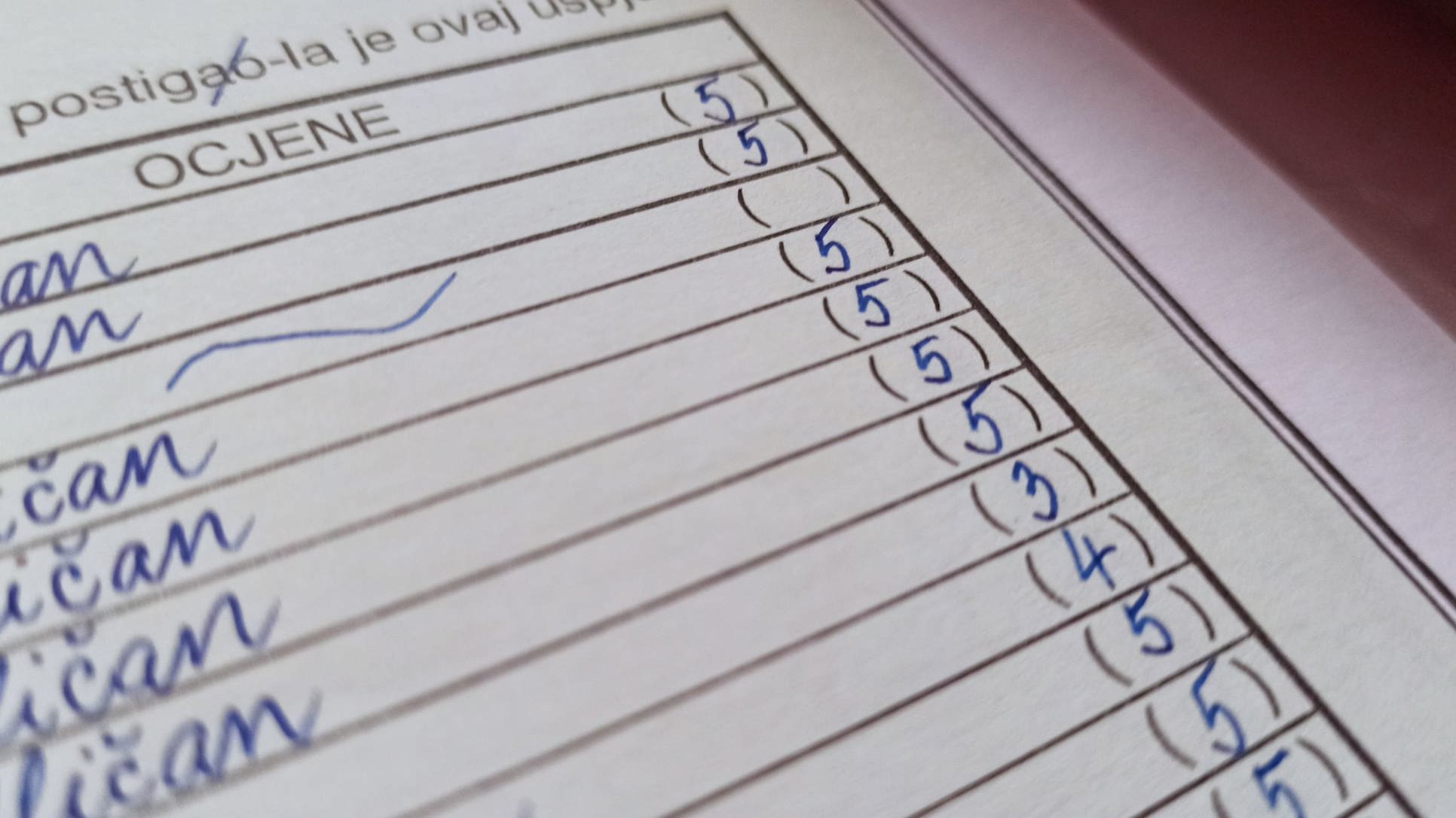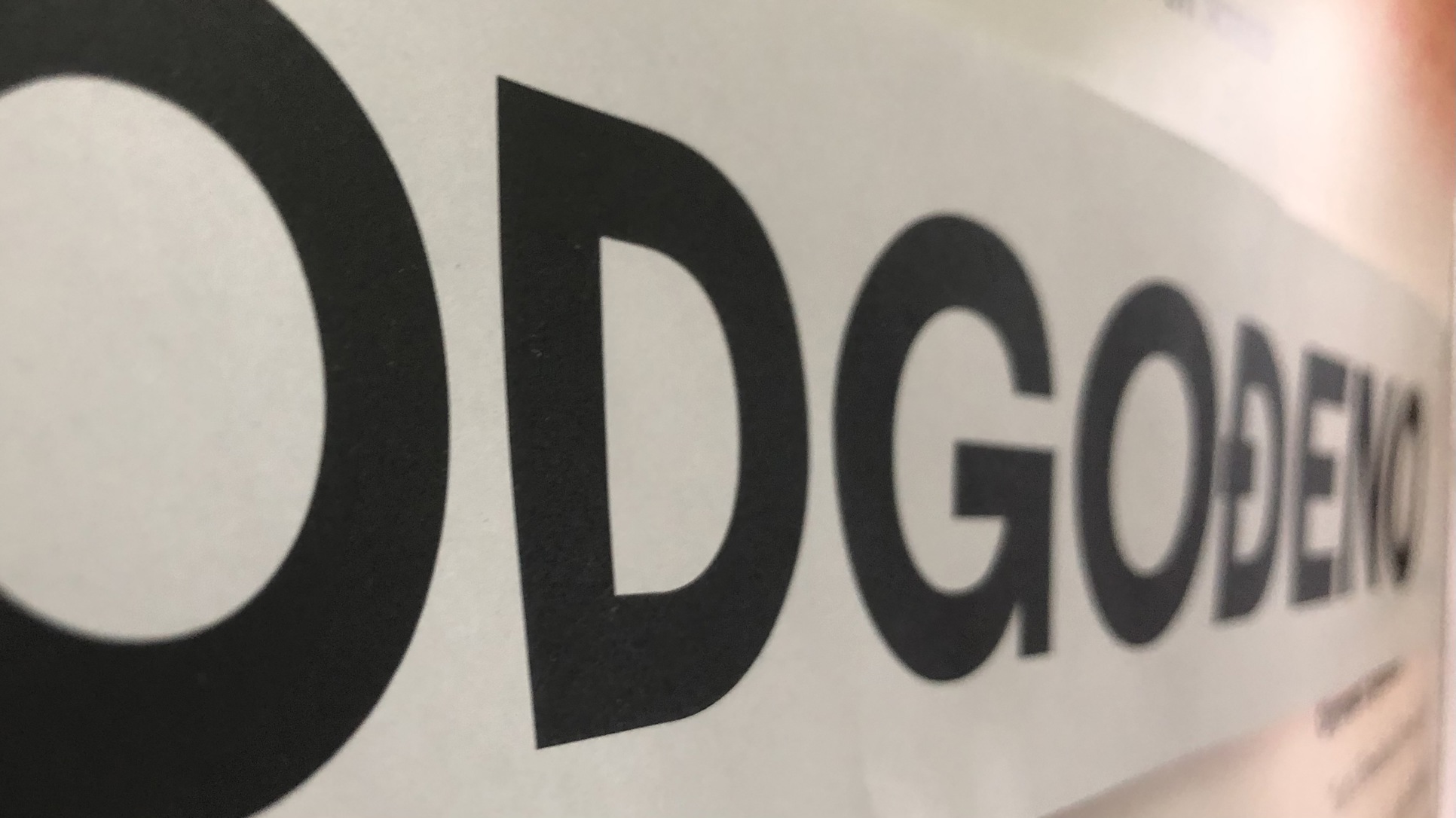Assistant professor at the Faculty of Science in Sarajevo and editor of portal Prometej, Franjo Šarčević, has been exposed to criticism, accusations, insults, and threats due to a Facebook comment from March 1st. The comment was about misuse of children in political marketing, specifically a boy in a camouflaged uniform with the Republic of BiH coat of arms — he’s seen hugging the mayor of Sarajevo, Benjamina Karić. Such exploitation of children is becoming more common. At the beginning of this year, students participated in promotions of the mayors of Banovići, Bihać, Bosanski Petrovac, Centar, Ilidža, Kladanj, Modriča, Novo Sarajevo, Prnjavor, Sanski Most, Trebinje, Ustikolina, Višegrad, Zvornik, Žepče…
Those are just the situations that the Croatian ombudsman for children, Ivana Milas Klarić, had in mind when she, eight years ago, advised candidates of parliament elections “to take care to protect rights and interests of children and not to exploit children in a political campaign.” The warning came as a result of the conclusion that “portrayals of children in political advertising have become standard, and this trend is only intensifying. Images of children are used in advertisements (newspapers, posters, etc.), politicians are photographed together with their children, children appear in a frame next to or behind politicians at an election rally, at the opening of children’s sports clubs, playgrounds, libraries, schools, kindergartens — especially in the case of politicians in power, who are fighting for re-election, so they use their current position to open new facilities for children.”
Bosnia and Herzegovina does not have a person to remind the state of the obligations undertaken by accepting the Convention on the Rights of the Child. The only institution that would have such a task on its agenda seems to be the Council for Children of Bosnia and Herzegovina, formed as an “expert, interdepartmental, advisory and coordinating body of the Council of Ministers of Bosnia and Herzegovina, responsible for promotion and protection of children’s rights in Bosnia and Herzegovina, and especially for monitoring the implementation of the Action plan for the Children of Bosnia and Herzegovina”.
The Council operates under the Ministry of Human Rights and Refugees, and the last convocation appointed in 2021 has 13 members. (Eight from public servants, two from non-governmental organizations, and three from the academic community. In addition to the appointment decision, there is also a decision on the amount of compensation for each member - 200 KM per month.) The Council had a task to finish, by March 5th of this year — the seventh Report on the implementation of the Convention on the Rights of the Child in Bosnia and Herzegovina to the UN Committee on the Rights of the Child (CRC).
(On the Council’s website there is no information confirming that this has been done.)
The detailed instructions for preparing the report, with specific questions that Bosnia and Herzegovina should have answered, has 72 pages and a total of 45 recommendations for advancements in the protection of children’s rights, but none of them refer to the misuse of children in the media and political campaigns.
In the Guide for Assessing and Determining the Best Interests of the Child – Guide for professionals, published in Sarajevo in 2018 by the Ministry of Human Rights and Refugees, for example, the principles of protection during professional and scientific research are clearly described. The researcher is obliged to obtain consent from the parents, and the so-called informed consent from the child, thereby committing to transparency, honesty, and responsibility. Taking photographs is not allowed.
Why do such ethics oblige researchers, but not mayors of municipalities or cities?
Today, on Monday, March 11th, 2024, my son’s kindergarten group planned a visit to the mayor of Sarajevo. The visit was initiated and organized by the educators, who are trying to fulfill the preschool program — specifically the part related to getting to know their surroundings and the people who live there. The boy’s mother and I had no problem with that educational goal. Even five-year-olds, all of whom watch Paw Patrol, know that a town must have a mayor and, if nothing else, they will be interested to see if their mayor has a pet chicken like in the show. But in the kindergarten, they could not guarantee us that the pictures would not appear in the mayor’s political marketing. From everything described above, nothing obliges her and her colleagues to do so. That is why we decided to let the boy out from kindergarten that day.
And we are grateful to Franjo Šarčević for asking his question. Outside the context of his political engagement and long-standing personal conflict with dissenters who understood his comment differently, this issue concerns all parents. Why should our children participate in the promotions of politicians and their distasteful populism? In what way do we protect their privacy, to which we committed to through the Convention of their rights? And what is privacy today anyway?
Franjo Šarčević’s comment deserved a far more serious discussion than the frothy reaction on social media. For starters, it would be good to know how UNICEF, Save the Children, and the Children’s Council of Bosnia and Herzegovina view the exploitation of children for political purposes. Školegijum will gladly publish their comments.


